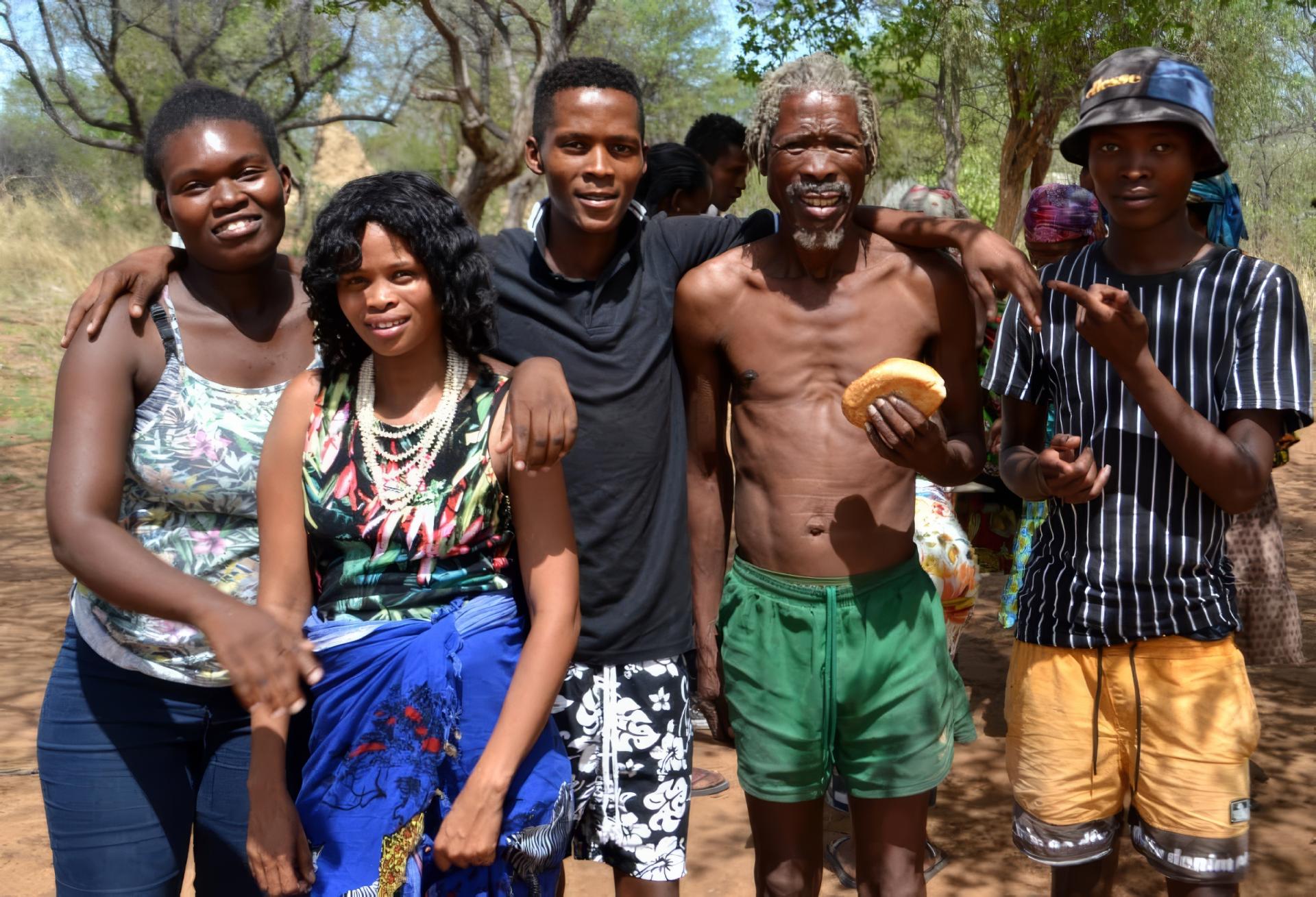
Simson Kapembe (SAN)
We are known as hunters and gatherers. We lived a nomadic way of life, gathering bush food to feed our families. We use different types of bush trees as traditional medicine to cure our family.
Our traditional authorities in our jurisdiction area in Bushman land sell our land to non-Indigenous people. My community has a very small piece of land in Tsumkwe, which the Namibian government declared a place of residence for the Bushman people. Some communities find it difficult to collect bush food anymore since non-Indigenous people hold 80 percent of the best fertile land. The best areas where the San used to collect their bush food are now fenced off, and communities are starving.
Indigenous people are not free in their own land. We depend on it for survival, collecting bush food, and growing agriculture, and getting traditional medicine from it. I became a land defender when the non-Indigenous people started taking our land. We tried talking to our traditional authorities, who suggested we ask the government to intervene. They have done nothing.
Between 2020–2023, we had oil and gas fracking on our Indigenous land and we were forcefully removed without compensation. During the COVID-19 lockdown, the government allowed a Canadian company, Recon Africa, to conduct drilling. We advocated for the government to overrule the decision and put the oil and gas fracking on hold. The government ruled in favor of Recon Africa to continue their fracking.
Why do we never benefit from the resources of our own country? We have conservancy projects that are supposedly community managed, but our conservancies are being managed by non-Indigenous people and they run the conservancies how they want. We, the community, never make decisions or have people who can manage. Indigenous people have knowledge in the areas of community resources management and in tourism and hospitality management. Our government manages all wildlife in our jurisdiction in the national parks and in conservancy boundaries where we are the custodians of the land. When the hungry community hunted, they declared hunting illegal and we were arrested. Meanwhile, they have not put any effort into our communities.

Recently, I started advocating for Indigenous Peoples’ land rights through theater and by sharing these Indigenous land issues at local and international media platforms. Our government sees this advocacy as a threat because they say we are reporting them to the international community and that we do not want to give land to non-Indigenous people. Our youth face under-development. We don’t have activities that keep us busy and off the streets. Youth face high rates of unemployment, alcohol, and drug abuse. The youth in Tsumkwe need training and funding to start their own businesses, especially in the sector of agriculture, to ensure food security and to fight injustice such as human rights violations.
We need funds to train Indigenous youth in areas of human rights defense, climate justice, and land rights defense. We need the international community to support us by sending investigating teams to Namibia and engaging with our Indigenous Peoples on the ground to document the issues that Indigenous people face. The international community can support people like me who are youth activists to become lawyers, Indigenous human rights defenders, land rights defenders, environmental lawyers, climate change injustice lawyers, and Indigenous language rights lawyers.
My current fellowship project is a theatrical intervention. Through theater production, we wanted to have a dramatic dialogue to address the impact of human rights violations that our community can understand. The second phase is community engagement. We are working on creating videos, audio recordings, images, and interviews to share and gain support to help us to fight the battle together.
Simson Kapembe (San) is a 2023 Cultural Survival Indigenous Youth Fellow and Chairperson of Tsumkwe Constituency Youth Forum from Tsumkwe, Namibia.
